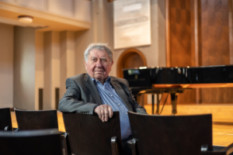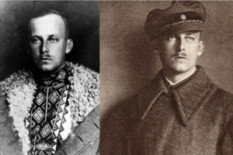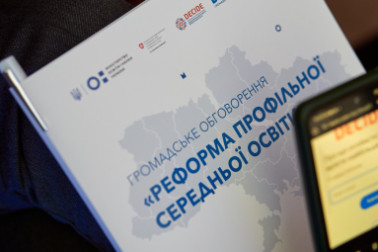Almost all of his life, Wilhelm fought for the Ukrainian cause and dreamed of seeing Ukraine become an independent and self-sufficient state and had a chance to become the King of Ukraine. We explored what prompted him to make this choice and what filled his life.
Ukrainians knew this politician, diplomat, poet, colonel of the Legion of Ukrainian Sich Riflemen by the name Vasyl Vyshyvanyi, which was given to him by our military during the First World War.
Wilhelm's childhood
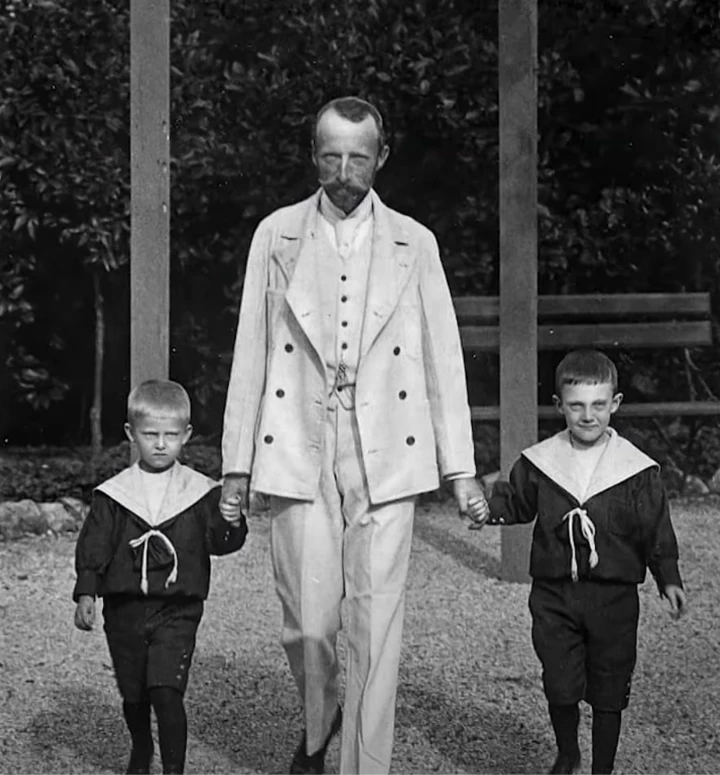
Karl Stephen Habsburg with his sons Wilhelm (left) and Karl Albrecht (right). Source: screenshot from the documentary "Prince of Austria. With Ukraine in His Heart"
Born a descendant of the great Habsburgs in Austria, in the city of Pula, now Croatia, he was the sixth and youngest child in the family of Karl Stephen, admiral of the Austro-Hungarian navy, and Maria Theresa, born Princess of Tuscany. His family tree is documented as far back as the ninth century. On the lines of both parents, Wilhelm is a very distant descendant of Anna Yaroslavna, and thus of all her ancestors, the Kyivan princes of the Rurik dynasty. In addition, he also had German, French, Spanish, Lithuanian, and Slavic blood in his veins.
However, Wilhelm belonged to the peripheral Teschinsky branch of the Habsburg House, which at the time was far from being able to lead the Austro-Hungarian Empire.
The archduke spent his carefree childhood on the family estate on the small island of Lucin in the Adriatic Sea. According to the book of memoirs “My Years at the Austrian Court”, written by governess Nellie Ryan, at the age of five, all the family's children were fluent in English, French, German, Italian, and Polish. The parents demanded strict daily discipline from their children and encouraged their all-round development in every possible way — they engaged in sports, gardening, and mastered various types of art.
Wilhelm was particularly impressed by family trips to different parts of the world. Most of all, the young Habsburg was attracted to exotic Arab countries, whose culture had interested him since childhood.
First acquaintance with Ukraine
In his youth and teenage years, Wilhelm lived in the estate of Żywiec, near Kraków, in the very west of the Kingdom of Galicia and Lodomeria. It was then that he became interested in Ukrainians. Wilhelm heard Poles referring to Ukrainians as "Rusyns" and calling them "brigands" and "bandits," while his close relatives described them as a "wild tribe" in his presence. The young Habsburg was 14 years old at the time, and he firmly believed that Ukrainians were a "brigand tribe" living on the wild, exotic outskirts of a great empire.
Wilhelm wanted to see these "bandits," so without saying a word, he left the family estate and traveled incognito by second-class train through Lviv and Stanislav (now Ivano-Frankivsk) to Vorokhta. At a time when his disappearance at home was causing a stir and his parents were turning the whole empire upside down, the young Habsburg was living quietly with his casual acquaintances, the wealthy Hutsuls Shekerik-Doniks, enjoying the nature of the Carpathians and learning Hutsul customs and life. This is how Wilhelm got to know Ukrainians and found out that they were not savages or robbers, and he decided to learn even more about them.
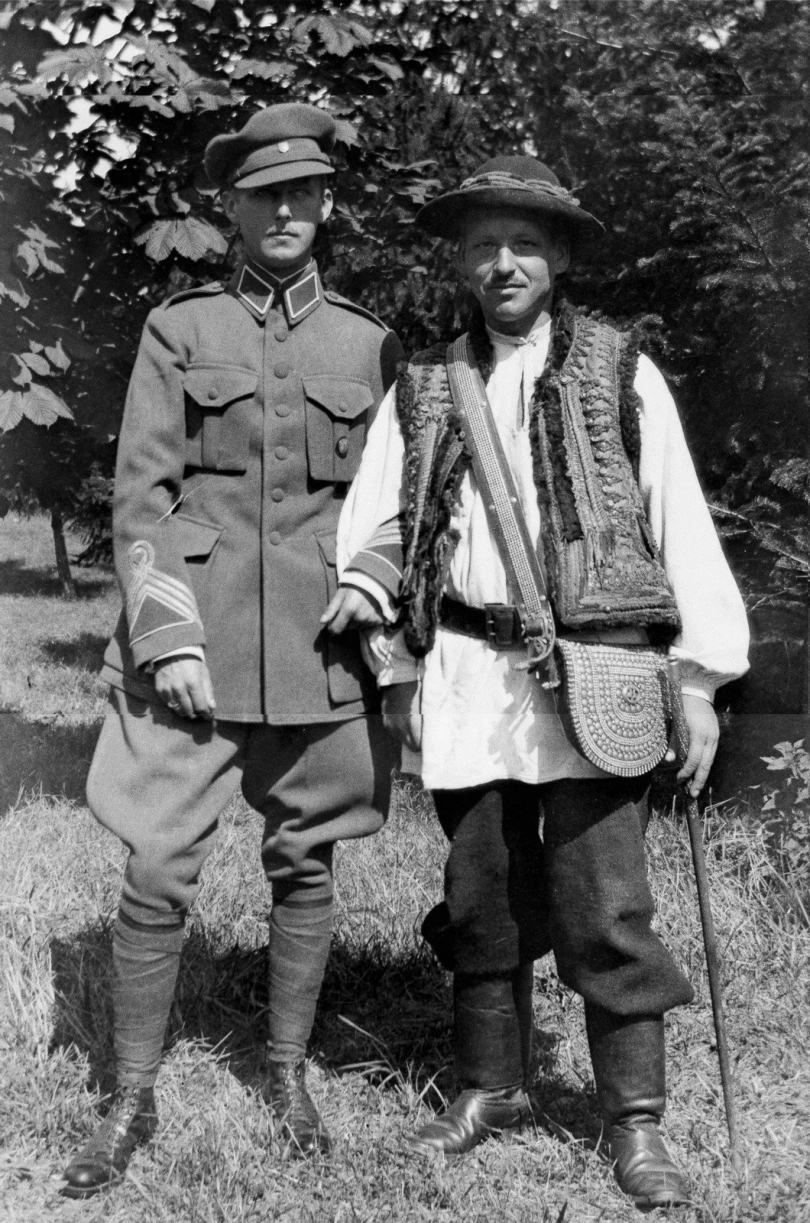
Vasyl Vyshyvanyi and Petro Shekerik-Donikiv. 1919. Photo from the CSPAU
Military victories and a new name
During the First World War, Wilhelm became the commander of the 13th Galician Uhlans regiment, the Austro-Hungarian Imperial Cavalry, which consisted mainly of Ukrainians. For about two years, he participated in battles with Russian troops. During this time, Wilhelm became convinced that the Ukrainian military were among the bravest in the world. With the help of his subordinate, a soldier from the Ternopil region, Habsburg learns the history of Ukraine and the language, reads the works of prominent Ukrainians, such as Taras Shevchenko, Ivan Franko, Vasyl Stefanyk, and others. He successfully combines the Vyshyvanka presented by the Ukrainian soldier with his military uniform and turns it into an important attribute of his personal style.
That's when the pseudonym Vasyl Vyshyvanyi appeared. According to one version, the Ukrainian Sich Riflemen (USS) nicknamed him that way when they saw a photo of him in a Vyshyvanka.
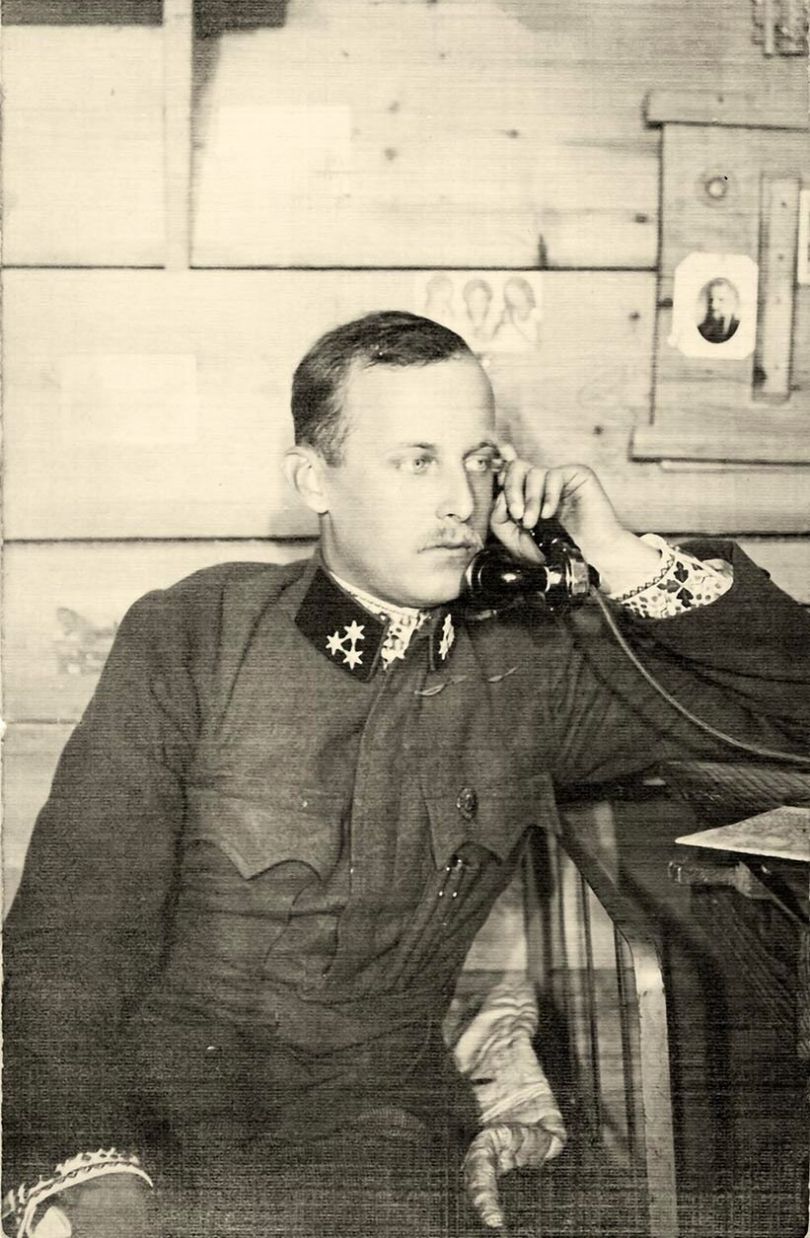
While on duty, Vyshyvanyi is actively involved in the Ukrainization of the army, insisting that the military wear blue and yellow insignia on their uniforms and feel free to speak Ukrainian.
Almost a king of Ukraine
During the Ukrainian People's Republic, under the Treaty of Brest-Litovsk signed between the UPR and Austria-Hungary, units of German and Austro-Hungarian troops were redeployed to Ukraine. Among them were units of the USS.
On April 1, 1918, Wilhelm Habsburg took over the command of the USS near Kherson.
While in the south of Ukraine, he not only protected the legion from disbandment, which was desired by some people in Ukraine and Austria, but also pursued an independent policy of supporting Ukrainian forces. He received orders from the Austrian command to send punitive expeditions to Ukrainian villages, but threw them "out to the wastebasket that was under the table."
Wilhelm gained enormous authority among Ukrainians as a colonel of the Legion of Ukrainian Sich Riflemen, an active participant in the Ukrainian national liberation struggle, and a defender of people. He became a living legend for Ukrainians. Some politicians were afraid of him. Pavlo Skoropadskyi was one of them. It even went so far as to say that at one point there was talk that the archduke might become king of the Ukrainian state. However, it was not meant to be.
In 1918, Austria-Hungary ceased to exist, and thus the Ukrainian state had to fight the Soviet invasion on its own. Wilhelm watched with pain the dispersion of Ukrainian forces and the internal strife that tore the country apart in the face of Soviet occupation.
In his memoirs, he wrote: "We have one common spirit, born from Cossack traditions, we have one idea, one program, one flag: one united, independent, sovereign Ukrainian state."
In 1921, he left the Ukrainian lands and returned to Vienna, where he published a collection of Ukrainian-language poetry, Mynayut` dni (Минають дні — The days pass), which he dedicated to the fighters who died for the freedom of Ukraine.
According to Vladlen Maraiev, PhD in History, this poetry "...although not of the highest quality, is imbued with love for the Carpathians and the Hutsul region."
Emigration
In the interwar period, Wilhelm lived in emigration in Paris, which at that time was a European center of freedom and free thought. There he rented an apartment near the Arc de Triomphe. However, Vyshyvanyi did not give up his fight for the Ukrainian cause. In the French capital, he engages in intelligence activities, tries to counteract Soviet influence on Ukrainians abroad, meets with OUN leader Yevhen Konovalets on several occasions, and helps establish international relations in favor of the Ukrainian liberation movement.
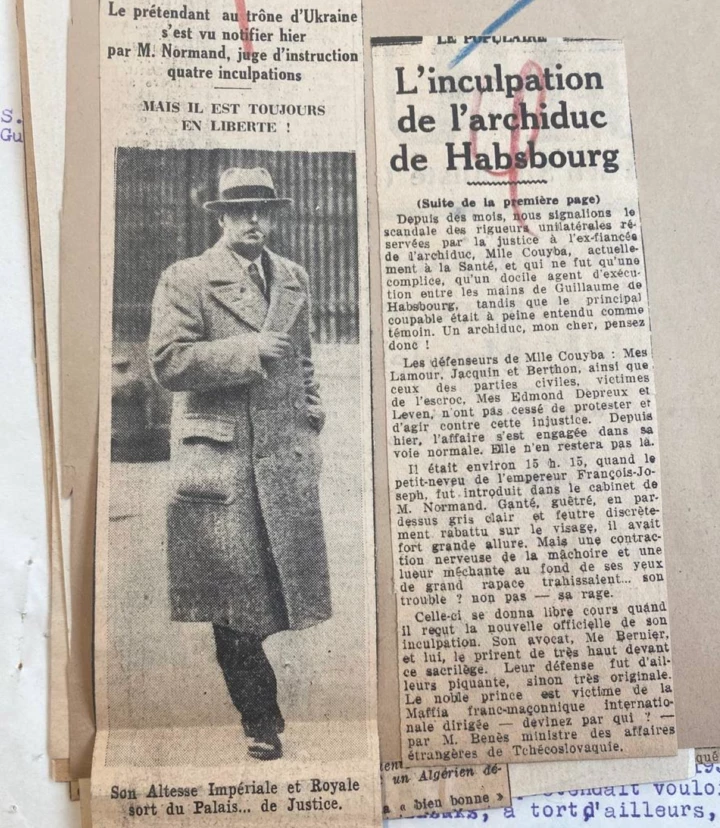
Photo of Wilhelm Habsburg in an article by the French newspaper Le Populaire, 1935. The author of the photo: Olga Kovtun
For some time, Vyshyvanyi was romantically involved with a Parisian woman, Paulette Kuiba, who turned out to be a prominent swindler and even, according to historian Timothy Snyder, a foreign intelligence agent. She framed Wilhelm, and he was forced to flee to Vienna in order to avoid being imprisoned.
Continuation of the struggle
During the Second World War, Vyshivanyi lived in Austria. There he conducted anti-Soviet and anti-Nazi activities and secretly collaborated with the OUN. To help the Ukrainian liberation movement, he actively uses his established ties with French and British intelligence.
After Germany's defeat, Vyshyvanyi's apartment ended up in the British occupation zone of Vienna. The Soviet secret services, which had been spying on him for a long time, aimed to finally neutralize him through his contacts with Ukrainian nationalists. In the summer of 1947, Wilhelm Habsburg was kidnapped on the streets of Vienna by SMERSH, agents of Soviet military counterintelligence, and ended up in the Lukyanivska Prison center in Kyiv, where he was interrogated by the NKVD for many months.
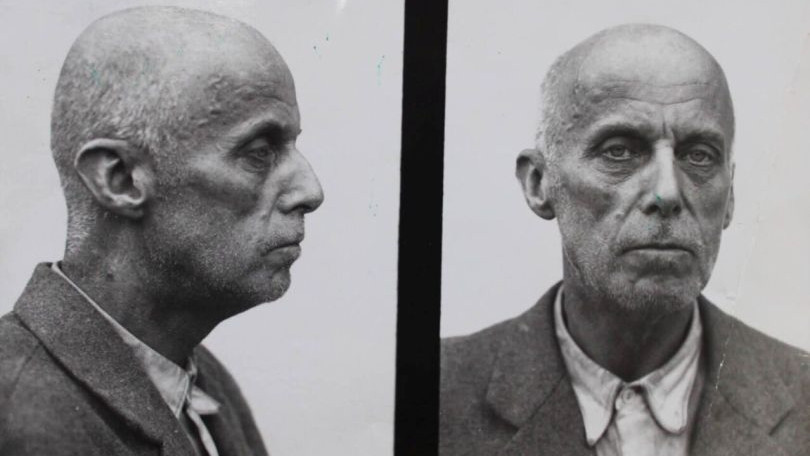
Vasyl Vyshyvanyi. The photographs were taken in Lukianivka prison in 1947 or 1948, shortly before his death.
Vyshyvanyi is accused of anti-Soviet activities and collaboration with French and British intelligence. He was sentenced to 25 years in prison. However, on August 18, 1948, he dies in prison, allegedly of "tuberculosis," as stated by Soviet investigators. Wilhelm Habsburg's burial place is still unknown.
Vasyl Vyshyvanyi, a person who was not Ukrainian by birth, became a symbol of the Ukrainian struggle and an example of the role of the individual in history. One person, if he or she is passionate about something, can change many things. For this, we pay great tribute to Wilhelm Habsburg.
